The Hoover Institution hosts Getting Global Monetary Policy On Track on Thursday, May 2, 2024 through Friday, May 3, 2024.
Our theme for this year is “Getting Global Monetary Policy on Track" and it follows up on last year’s theme “How to Get Back on Track," and the previous year’s theme “How Monetary Policy Got Behind the Curve.” A key goal of the conference is to examine how to get back and stay on track and, thereby, how to reduce the inflation rate without slowing down economic growth. This year the key policy issues are largely international, with special discussions of Europe and Asia. This is a policy-oriented conference consisting of formal presentations, policy panels, and in-depth discussions. The conference builds on previous Hoover monetary policy conferences going back many years—you can read about our 15-year milestone here. Background papers will be provided in advance of the conference.
This conference is by invitation only.

Luigi Bocola is an associate professor in the Stanford Economics Department, a faculty research fellow at the National Bureau of Economic Research, and a senior fellow at the Stanford Institute for Economic Policy Research. Bocola’s research addresses issues in open- and closed-economy macroeconomics. Among other topics, his research has focused on the macroeconomic consequences of sovereign debt crises, financial dollarization in emerging markets, and macroeconomic effects of shocks to the financial sector. His research has been published in leading academic journals and has been awarded a CAREER grant by the National Science Foundation and an Alfred P. Sloan Research Fellowship. He received a BA and a doctorate from the University of Torino and a PhD from the University of Pennsylvania.
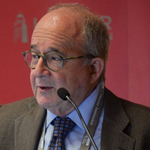
Michael D. Bordo is a Board of Governors Professor of Economics and director of the Center for Monetary and Financial History at Rutgers University. He is the Ilene and Morton Harris Distinguished Visiting Fellow at the Hoover Institution. He has held previous academic posts at the University of South Carolina and Carleton University in Ottawa, Canada, and was visiting professor at Cambridge, Princeton, and Harvard universities and others. Bordo was also a visiting scholar at the International Monetary Fund, the Federal Reserve Banks of St. Louis, Cleveland, and Dallas, the Federal Reserve Board of Governors, the Bank of Canada, the Bank of England, and the Bank for International Settlements. He is a research associate of the National Bureau of Economic Research and a member of the Shadow Open Market Committee. He has published eighteen books on monetary economics and monetary history, most recently The Historical Performance of the Federal Reserve: The Importance of Rules (Hoover Institution Press, 2019). He is editor of a series of books for Cambridge University Press: Studies in Macroeconomic History. He has a BA from McGill University, an MSc in economics from the London School of Economics, and a PhD from the University of Chicago.

Markus K. Brunnermeier is the Edwards S. Sanford Professor in the Economics Department at Princeton University and director of Princeton's Bendheim Center for Finance. His research focuses on international financial markets, monetary theory, and macroeconomics, with special emphasis on bubbles, liquidity, financial crises, and digital money. In 2020, he established the Markus Academy webinar series as a platform for leading thinkers. Brunnermeier was awarded his PhD by the London School of Economics (LSE) and a Doctor honoris causa from the University of Regensburg. His award-winning books include A Crash Course on Crises (Princeton University Press, 2023), The Resilient Society (Endeavor Literary Press, 2021), and The Euro and the Battle of Ideas (Princeton University Press, 2016).

John H. Cochrane is the Rose-Marie and Jack Anderson Senior Fellow at the Hoover Institution. He is also a research associate of the National Bureau of Economic Research and an adjunct scholar of the Cato Institute. Before joining Hoover, Cochrane was a professor of finance at the University of Chicago’s Booth School of Business and previously taught in its Economics Department. He served as president of the American Finance Association and is a fellow of the Econometric Society. He writes on asset pricing, financial regulation, business cycles, and monetary policy. He has also written articles on macroeconomics, health insurance, time-series econometrics, financial regulation, and other topics. His books include The Fiscal Theory of the Price Level (Princeton University Press, 2023) and Asset Pricing (Princeton University Press, 2001, rev. 2005). Cochrane frequently contributes essays to the Wall Street Journal, National Review, Project Syndicate, and other publications. He maintains the Grumpy Economist blog. Cochrane earned a bachelor’s degree in physics at MIT and his PhD in economics at the University of California–Berkeley.

Steven J. Davis is the Thomas W. and Susan B. Ford Senior Fellow at the Hoover Institution, senior fellow at the Stanford Institute for Economic Policy Research, and distinguished service professor emeritus at the University of Chicago Booth School of Business. He is a research associate of the National Bureau of Economic Research, advisor to the Monetary Authority of Singapore, visiting scholar at the Federal Reserve Bank of Atlanta, senior advisor to the Brookings Papers on Economic Activity, and elected fellow of the Society of Labor Economists. Davis studies working arrangements, business dynamics, policy uncertainty, and other topics. He is a cofounder of the Economic Policy Uncertainty project, the Survey of Business Uncertainty, the US Survey of Working Arrangements and Attitudes, the Global Survey of Working Arrangements, the Work-from-Home Map project, and the Stock Market Jumps project. He co-organizes the Asian Monetary Policy Forum, held annually in Singapore.
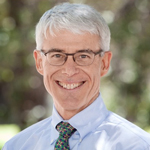
Darrell Duffie is the Adams Distinguished Professor of Management and Professor of Finance at Stanford University’s Graduate School of Business and a senior fellow, by courtesy, at the Hoover Institution. He is a research fellow of the National Bureau of Economic Research and a fellow of the American Academy of Arts and Sciences. Duffie is a past president of the American Finance Association and chaired the Financial Stability Board’s Market Participants Group on Reference Rate Reform. He is an independent director of the Dimensional Funds and a member of the leadership teams of the G30 working groups chaired by Tim Geithner on Treasury Market Liquidity and chaired by Bill Dudley on Bank Failures and Contagion: Lender of Last Resort, Liquidity, and Risk Management. Duffie’s most recent book is Fragmenting Markets: Post-Crisis Bank Regulations and Financial Market Liquidity (De Gruyter, 2022). In 2024, Duffie is teaching a new course at Stanford, The Future of Money and Payments.
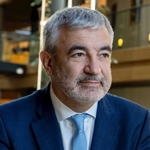
Luis Garicano is professor of public policy at the London School of Economics, research fellow at the Centre for Economic Policy Research, and fellow and senior nonresident fellow at Bruegel. Previously, he spent a decade at the University of Chicago Booth School of Business, where he reached the position of professor of economics and strategy, and another at the London School of Economics. His research, published in leading economics journals such as the Journal of Political Economy, the Quarterly Journal of Economics, the American Economic Review and the Review of Economic Studies, studies the organization of knowledge and its impact on productivity and economic growth. He has also developed a stream of more applied policy research on how to improve Europe's institutions to prevent new economic crises in the Eurozone. He was part of the group of European economists advocating for the creation of European Safe Bonds, a proposal later taken up as legislation by the European Commission. In 2019 he stepped out of academia to become a member of the European Parliament. As the vice president of the centrist parliamentary grouping RenewEurope, he oversaw economic affairs and coordinated the group's parliamentary work on the Economic and Monetary Affairs Committee. His responsibilities included leading the appointment and parliamentary control of European Central Bank authorities and financial supervisors, and he was involved in rule making in economic, financial, banking, and anti-money-laundering areas.

Austan D. Goolsbee is president and chief executive officer of the Federal Reserve Bank of Chicago. In this capacity, he serves on the Federal Open Market Committee—the Federal Reserve System’s monetary policymaking body—and leads the Chicago Fed, which conducts research and monitors local economic conditions in support of the formulation of monetary policy, supervises and regulates banking organizations, and provides financial services to banks and similar institutions, as well as to the US government. Prior to becoming president of the Chicago Fed in January 2023, Goolsbee served as the Robert P. Gwinn Professor of Economics at the University of Chicago Booth School of Business where he first joined the faculty in 1995. He is known for his empirical research on many different industries and on economic policy. He has been a Fulbright Scholar and an Alfred P. Sloan Fellow. Goolsbee served as a member and then chairman of the Council of Economic Advisers from 2009 through 2011 and was a member of the president’s cabinet. He has also served on the Chicago Board of Education, the Economic Advisory Panel to the Federal Reserve Bank of New York, the Panel of Economic Advisers to the Congressional Budget Office, the US Census Advisory Committee, the Digital Economy Board of Advisors to the Commerce Department, and the External Advisory Group on Digital Technology for the International Monetary Fund. Goolsbee has a PhD in economics from the Massachusetts Institute of Technology and a BA and MA in economics from Yale University.

Yuriy Gorodnichenko, a native of Ukraine, is a Quantedge Presidential Professor at the Department of Economics, University of California–Berkeley. He received his BA and MA at EERC/Kyiv-Mohyla Academy (Kyiv, Ukraine) and his PhD at the University of Michigan. A significant part of his research has been about monetary policy (effects, optimal design, inflation targeting), fiscal policy (countercyclical policy, government spending multipliers), taxation (tax evasion, inequality), economic growth (long-run determinants, globalization, innovation, financial frictions), and business cycles. He serves on many editorial boards, including American Economic Review and VoxUkraine (http://voxukraine.org/). He is the leader of the Centre for Economic Policy Research's Ukraine Initiative. Gorodnichenko is a prolific researcher and his work has been published in leading economics journals and cited in policy discussions and media. He has received numerous awards for his research.
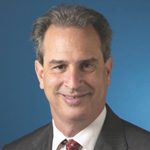
Stephen Haber is the Peter and Helen Bing Senior Fellow at the Hoover Institution, the A. A. and Jeanne Welch Milligan Professor in the School of Humanities and Sciences at Stanford University, and senior fellow at the Stanford Institute for Economic Policy Research. In addition, he is a professor of political science, professor of history, and professor of economics (by courtesy). Haber has spent his career investigating why the world distribution of income is so uneven. His papers have been published in economics, history, political science, and law journals. He is the author of five books and the editor of six more. Haber’s most recent books include Fragile by Design with Charles Calomiris (Princeton University Press, 2014), which examines how governments and industry incumbents often craft banking regulatory policies in ways that stifle competition and increase systemic risk.

Zhiguo He is the James Irvin Miller Professor of Finance at the Graduate School of Business, Stanford University. He is a financial economist whose expertise covers financial markets, financial institutions, and macroeconomics broadly. He is also conducting academic research on Chinese financial markets and writing academic articles on new progress in the area of cryptocurrency and blockchains. Before joining Stanford GSB, he was on the faculty of Chicago Booth from 2008 to 2023, where he received tenure in 2015 and led Becker Friedman Institute China from 2020 to 2023. He has been named a 2014 Alfred P. Sloan Research Fellow and has won numerous awards for his outstanding academic record, including the Lehman Brothers Fellowship for Research Excellence in Finance, the Swiss Finance Institute Outstanding Paper Award, the Smith-Breeden First Prize, and the Brattle Group First Prize.
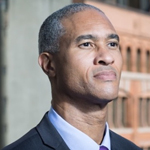
Peter Blair Henry is the Class of 1984 Senior Fellow at the Hoover Institution, senior fellow at Stanford’s Freeman Spogli Institute for International Studies, and dean emeritus of New York University’s Leonard N. Stern School of Business. Henry is the former Konosuke Matsushita Professor of International Economics at the Stanford Graduate School of Business, where his research was funded by a National Science Foundation CAREER Award. He is the author of Turnaround: Third World Lessons for First World Growth (Basic Books, 2013). He chairs the Board of Directors of the National Bureau of Economic Research, received the Foreign Policy Association Medal in 2015, and in 2016 was honored as one of the Carnegie Foundation’s Great Immigrants. Henry also leads the PhD Excellence Initiative, a predoctoral fellowship program in economics sponsored by Hoover and the Alfred P. Sloan Foundation, for which he received the 2022 Impactful Mentoring Award from the American Economic Association. Henry received his PhD in economics from MIT and bachelor’s degrees from Oxford University and the University of North Carolina at Chapel Hill.
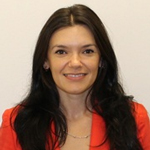
Marianna Kudlyak is a macroeconomist with research interests in macroeconomics, labor economics, and consumer finance. She works as a research advisor at the Federal Reserve Bank of San Francisco. Previously, she worked as an economist at the Federal Reserve Bank of Richmond. She is a visiting fellow at the Hoover Institution, research fellow at the Centre for Economic Policy Research Monetary Economics and Fluctuations Programme, and research fellow at the Institute of Labor Economics. She earned a PhD in economics from the University of Rochester. Kudlyak has conducted research on unemployment, nonemployment, wages, online job searches, mortgage defaults, household borrowing, and inequality. She has published numerous articles in academic journals and Federal Reserve publications and is ranked in the top one hundred of female economists worldwide (over the last ten years of publications) by IDEAS/RePEc.

Ross Levine is a senior fellow at the Hoover Institution and a research associate at the National Bureau of Economic Research. Previously a faculty member at the University of California‒Berkeley’s Haas School of Business, Levine now codirects Hoover’s Working Group on Financial Regulation. Levine’s research sheds light on how financial regulations and the operation of financial systems shape economic prosperity, including economic growth and stability, technological innovation, entrepreneurship, the economic opportunities available to individuals, poverty, income distribution, and the environment. In addition to authoring or editing six books, he has published almost 200 articles in premier economics, finance, and management journals. Levine’s research resonates beyond academia, shaping dialogue and policies at prominent international institutions such as the World Bank, International Monetary Fund, and European Central Bank.
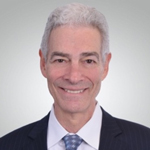
Mickey D. Levy is a visiting scholar at the Hoover Institution and a longstanding member of the Shadow Open Market Committee. He is also a member of the Council on Foreign Relations. Levy is a past member of the Financial Research Advisory Committee of the Office of Financial Research. From 1998–2013, he was chief economist at Bank of America Corporation, where he was on the executive asset liability and finance committees. Currently he runs a consulting firm (MDL Insights) and a website (Mickeydlevy.com). He conducts research on monetary and fiscal policies and on how they influence economic and financial market performance. He has authored numerous articles on the Federal Reserve, the effectiveness of monetary and fiscal policies, those policies and their interaction and influences on the business cycle, credit conditions, and inflation. His articles appear frequently in the Wall Street Journal and various policy journals. He testifies frequently before the US Congress on various aspects of monetary policy and banking regulation, credit conditions and debt, and fiscal and budget policies.

Klaus Masuch is principal advisor to the Director General Economics of the European Central Bank. Masuch has worked at the ECB from the start of the euro, first as head of the Monetary Policy Strategy Division, then as head of the EU Countries Division, and as principal advisor. Before the creation of the ECB, he worked as senior economist at the Bundesbank and the European Monetary Institute that prepared the euro and the operations of the forthcoming European Central Bank. Since 2009 Masuch has worked extensively on country risk assessment and the euro area sovereign debt crisis. He coordinated (at staff level) the ECB position on the adjustment programs and country missions and headed the ECB’s mission teams (acting in liaison with the European Commission and in cooperation with the IMF mission) that carried out technical analyses and held discussions with the authorities of Greece (2010‒15) and Ireland (2010‒12). More recently, he has been working on EU country surveillance and convergence, public debt sustainability, structural policies, and monetary-fiscal interactions in the euro area.
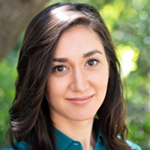
Emi Nakamura is the Chancellor's Professor of Economics in the University of California‒Berkeley Economics Department. Her research focuses on monetary and fiscal policy, business cycles, and macroeconomic measurement. She is a member of the American Academy of Arts and Sciences and codirector of the Monetary Economics program at the National Bureau of Economic Research. She serves on the Congressional Budget Office’s Panel of Economic Advisers and the Executive Committee of the American Economics Association. She is a recipient of the John Bates Clark medal, the Elaine Bennett Research Prize, the National Science Foundation CAREER Grant, and the Sloan Research Fellowship. She holds a PhD from Harvard University and an AB from Princeton University. She taught at Columbia University's Economics Department and Business School before joining the University of California‒Berkeley Economics Department in 2018.
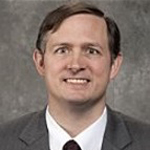
Edward Nelson is a senior advisor at the Division of Monetary Affairs at the Federal Reserve Board. His publications include Milton Friedman and Economic Debate in the United States, 1932‒1972 (volumes 1 and 2, University of Chicago Press, 2020) and numerous articles on monetary policy strategy, monetary policy rules, and the inflation experience of the United States and other countries. He received a bachelor’s degree in economics from the University of Sydney in 1993 and a PhD in economics from Carnegie Mellon University in 1998. Prior to rejoining the Federal Reserve Board in 2017, he worked at the board from 2009 to 2015, serving in the positions of senior economist, chief of the monetary studies section, and assistant director. He has also worked at the Bank of England (1998‒2003), the Federal Reserve Bank of St. Louis (2003‒09), and the University of Sydney (2015‒17).

Juan Pablo Nicolini is a senior research economist with the Federal Reserve Bank of Minneapolis. Before joining the Fed, he taught at the Universitat Pompeu Fabra in Barcelona and the Universidad Torcuato Di Tella in Buenos Aires, where he holds a part-time position. In addition, he served as chairman of the Economics Department (1994–99) and president (2001–09) of Universidad Torcuato Di Tella. Nicolini studied economics at the Universidad Nacional de Tucumán in Argentina and earned MA and PhD degrees in economics from the University of Chicago. The focus of his research centers on macroeconomics. His work has been published in the Journal of Political Economy, the Journal of Monetary Economics, the American Economic Review, and the Journal of Finance, among others. He recently edited, jointly with Timothy Kehoe, A Monetary and Fiscal History of Latin America, 1960‒2017 (University of Minnesota Press, 2021).

Emilio Ocampo was an economic advisor to Javier Milei during the 2023 presidential campaign and in such capacity designed a dollarization blueprint for Argentina. He was slated to be president of Argentina’s central bank but resigned before taking office due to policy differences. Ocampo is a professor of finance and economic history at Universidad del CEMA (UCEMA), where he is also a member of the Academic Committee of the MSc Finance program and director of the Center for the Study of Economic History. In 2013‒14 he taught finance at NYU’s Stern School of Business. He has sat on the Academic Advisory Board of Fundación Libertad y Progreso, a public policy think tank based in Buenos Aires since its founding in 2011. His professional background includes over twenty years of experience in international finance and capital markets in New York and London. He is the coauthor with Nicolás Cachanosky of Dolarización: Una Solución para la Argentina (Editorial Claridad, 2022). Ocampo has an MBA degree from the University of Chicago and a graduate degree in economics from the University of Buenos Aires.
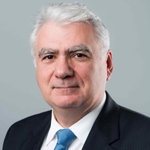
Athanasios Orphanides is professor of the practice of global economics and management at the MIT Sloan School of Management and cochair of the Board of Governors of Asia School of Business. He is also an honorary advisor to the Bank of Japan’s Institute for Monetary and Economic Studies, a member of the Shadow Open Market Committee, a research fellow at the Centre for Economic Policy Research, a senior fellow at the Center for Financial Studies, and a research fellow at the Institute for Monetary and Financial Stability. Before joining MIT Sloan in 2012, he served a five-year term as governor of the Central Bank of Cyprus and was a member of the Governing Council of the European Central Bank. Earlier, he served as senior advisor at the Board of Governors of the Federal Reserve System, where he began his professional career as an economist.
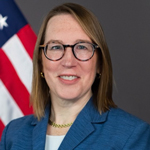
Hester M. Peirce has served as a commissioner of the US Securities and Exchange Commission since January 11, 2018. Her appointment brought her back to the SEC, where, early in her career, she served as a staff member in the Division of Investment Management and later as counsel to Commissioner Paul Atkins. Immediately before her appointment, Peirce conducted research on the regulation of financial markets at the Mercatus Center at George Mason University. She also has served as senior counsel on the Senate Committee on Banking, Housing, and Urban Affairs, where she advised the ranking member, Sen. Richard Shelby (R-AL), and other members of the committee on securities issues. Peirce is considering taking up beekeeping after her term ends in 2025.
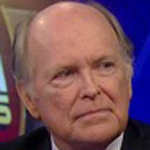
Charles I. Plosser served as president and CEO of the Federal Reserve Bank of Philadelphia from 2006 until his retirement in 2015. He has been a longtime advocate of the Federal Reserve adopting an explicit inflation target, which the Federal Open Market Committee did in January 2012. Before joining the Philadelphia Fed in 2006, Plosser served as dean of the University of Rochester’s Simon School of Business from 1993 to 2003. He has been a research associate of the National Bureau of Economic Research as well as a visiting scholar at the Bank of England. He is currently a visiting scholar at the Hoover Institution. Plosser served as coeditor of the Journal of Monetary Economics for two decades and cochaired the Shadow Open Market Committee with Anna Schwartz. His research and teaching interests include monetary and fiscal policy, long-term economic growth, and banking and financial markets. Plosser earned PhD and MBA degrees from the University of Chicago.

Valerie Ramey is a senior fellow at the Hoover Institution. She is also a research associate of the National Bureau of Economic Research (NBER), a research fellow of the Center for Economic Policy and Research, a member of the American Academy of Arts and Sciences, and a fellow of the Econometric Society. She currently serves on the Panel of Economic Advisers for the Congressional Budget Office and on the NBER Business Cycle Dating Committee. Ramey earned a PhD in economics from Stanford University. She has published numerous scholarly and policy-relevant articles on macroeconomic topics such as the sources of business cycles, the effects of monetary and fiscal policy, and the impact of volatility on growth. Her work has been featured in major media, such as the Wall Street Journal and the New York Times.
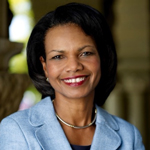
Condoleezza Rice is the Tad and Dianne Taube Director and the Stephenson Senior Fellow on Public Policy at the Hoover Institution. She is also the Denning Professor in Global Business and the Economy at Stanford’s Graduate School of Business and a founding partner of international strategic consulting firm Rice, Hadley, Gates & Manuel LLC. Rice served as the sixty-sixth US secretary of state (2005–09) and national security advisor (2001–05) in the George W. Bush administrations. She previously served on President George H. W. Bush’s National Security Council staff and as Stanford University’s provost. She has been on the Stanford faculty since 1981 and has won two of the university’s highest teaching honors. In 2022, Rice became a part owner of the Denver Broncos as part of the Walton-Penner Family Ownership Group. Born in Birmingham, Alabama, Rice earned her bachelor’s degree, cum laude and Phi Beta Kappa, from the University of Denver; her master’s degree from the University of Notre Dame; and her PhD from the Graduate School of International Studies at the University of Denver, all in political science. Rice is a fellow of the American Academy of Arts & Sciences and has been awarded over fifteen honorary doctorates.

Amit Seru is a senior fellow at the Hoover Institution, the Steven and Roberta Denning Professor of Finance at Stanford’s Graduate School of Business, a senior fellow at Stanford’s Institute for Economic Policy Research, and a research associate at the National Bureau of Economic Research. Seru’s primary research interest relates to financial intermediation and regulation. He was a coeditor of the Journal of Finance, department editor of Management Science, and associate editor of the Journal of Political Economy. He has received various National Science Foundation grants and the Alexandre Lamfalussy Senior Research Fellowship from the Bank for International Settlements (BIS). He has presented his research to US and international regulatory agencies, including BIS, the Consumer Financial Protection Bureau, the European Central Bank, the Federal Reserve, the Federal Deposit Insurance Corporation, the Financial Industry Regulatory Authority, the International Monetary Fund, and the Monetary Authority of Singapore. His research has been featured in leading economic journals and major media outlets. Seru earned a BE in electronics and communication and an MBA from the University of Delhi and a PhD in finance from the University of Michigan. He was formerly a tenured faculty member at the University of Chicago’s Booth School of Business.

Christina Parajon Skinner is an expert on financial policy and regulation, with a focus on central banks and fiscal authorities. Her research pursues questions surrounding central bank mandates, monetary and fiscal policy, capitalism and financial markets, and the constitutional separation of powers. Skinner’s work is international and comparative in scope, drawing on her experience as an academic and central bank lawyer in the United Kingdom. Her research has been published in the Columbia Law Review, Duke Law Journal, Vanderbilt Law Review, Harvard Business Law Review, and Georgetown Law Journal, among other leading academic journals. She is an affiliate fellow at the Stigler Center and the University of Chicago’s Booth School of Business and a research member of the European Corporate Governance Institute. Before joining the faculty at the Wharton School of the University of Pennsylvania, she served as legal counsel at the Bank of England, in the Financial Stability Division of the Bank’s Legal Directorate. Previously, she was an academic visitor at the University of Oxford Faculty of Law and a visiting fellow at the London School of Economics Law School. From 2014‒16, she was a postdoctoral fellow and lecturer in law at Columbia Law School.

Jón Steinsson is Chancellor's Professor of Economics at the University of California‒Berkeley. He is codirector for the Monetary Economics program of the National Bureau of Economic Research and co-editor of the Brookings Papers on Economic Activity. Steinsson is a member of the American Academy of Arts and Sciences and a fellow of the Econometric Society. He holds a PhD in economics from Harvard University and a bachelor‘s degree from Princeton University. He taught at Columbia University before moving to UC Berkeley in 2018. His main area of research is empirical macroeconomics with a focus on monetary economics and business cycles. He is known for combining innovative empirical methods with a tight connection to economic theory to make inferences about core aspects of the workings of the macroeconomy. He grew up in Iceland and has participated actively in the political and economic discourse in that country.
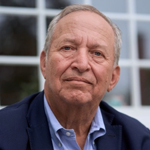
Lawrence H. Summers is the Charles W. Eliot University Professor and president emeritus of Harvard University and the Weil Director of the Mossavar-Rahmani Center for Business & Government at Harvard’s Kennedy School. During the past two decades, he has served in a series of senior policy positions in Washington, DC, including as secretary of the Treasury for President Clinton, director of the National Economic Council for President Obama, and vice president of development economics and chief economist of the World Bank. He received a bachelor of science degree from the Massachusetts Institute of Technology in 1975 and was awarded a PhD from Harvard in 1982. In 1983, he became one of the youngest individuals in recent history to be named as a tenured member of the Harvard University faculty. In 1987, Summers became the first social scientist ever to receive the annual Alan T. Waterman Award of the National Science Foundation, and in 1993 he was awarded the John Bates Clark Medal, given to an outstanding American economist under the age of forty.
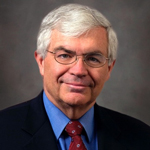
John B. Taylor is the George P. Shultz Senior Fellow in Economics at the Hoover Institution, where he chairs the Economic Policy Working Group and cochairs the Technology, Economics, and Governance Working Group; and the Mary and Robert Raymond Professor of Economics at Stanford University. He also directs Stanford’s Introductory Economics Center and cochairs the Faculty Council of the Stanford Emerging Technologies Review. He has served as senior economist on the President’s Council of Economic Advisers; as under secretary of the Treasury for international affairs; as president of the Mont Pelerin Society; and on the G20 Eminent Persons Group on Global Financial Governance. Among his many awards are the US Treasury’s Alexander Hamilton Award and Distinguished Service Award, the Medal of the Republic of Uruguay, the Truman Medal for Economic Policy, the Bradley Prize, and the Hayek Prize for his book First Principles. His most recent books are Principles of Economics, tenth edition (with Akila Weerapana, FlatWorld, 2023), Choose Economic Freedom: Enduring Policy Lessons from the 1970s and 1980s (with George P. Shultz, Hoover Institution Press, 2020) and Reform of the International Monetary System (MIT Press, 2019). Taylor received a BA in economics, summa cum laude, from Princeton and a PhD in economics from Stanford.

Carolyn A. Wilkins is a senior research scholar at Princeton University’s Griswold Center for Economic Policy, where she is a lecturer in the Department of Economics. She is also an external member of the Financial Policy Committee at the Bank of England and serves on the board of directors of Canada’s Intact Financial Corporation. She is a mentor to fintech entrepreneurs at the Creative Destruction Lab (HEC). Wilkins worked for twenty years at the Bank of Canada and served as senior deputy governor from 2014 to 2020. She has contributed to international financial regulation, including as a member of the Financial Stability Board and the Basel Committee on Banking Supervision. In 2022‒23, she was one of three panelists leading the external review of the Reserve Bank of Australia. Wilkins earned her MA from the University of Western Ontario and her BA from Wilfrid Laurier University, both in economics. She received an honorary doctorate from Wilfrid Laurier University in 2022. She was named as a winner of Canada’s Most Powerful Women by the Women’s Executive Network in 2016 and 2018.

John C. Williams is the president and chief executive officer of the Federal Reserve Bank of New York. In that capacity, he serves as the vice chair and a permanent voting member of the Federal Open Market Committee. From 2011 to mid-June 2018, Williams was the president and chief executive officer of the Federal Reserve Bank of San Francisco. Prior to that, he was the executive vice president and director of research at the San Francisco Fed, which he joined in 2002. Williams began his career in 1994 as an economist at the Board of Governors of the Federal Reserve System. In addition, he served as a senior economist in the White House Council of Economic Advisers and as a lecturer at Stanford University’s Graduate School of Business. Williams holds a PhD in economics from Stanford University, an MS from the London School of Economics, and an AB from the University of California‒Berkeley. His research focuses on monetary policy under uncertainty, business cycles, and innovation. He is a research associate at the Centre for Applied Macroeconomic Analysis and served as managing editor of the International Journal of Central Banking from 2011 to 2016. In addition, he has held associate editor positions at the American Economic Review and the Journal of Economic Dynamics and Control.
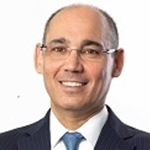
Amir Yaron was appointed by the president of Israel as governor of the Bank of Israel on December 24, 2018, and reappointed for a second term on December 18, 2023. He is a world-renowned expert in macroeconomics, monetary economics, finance, and financial economics. Yaron obtained his bachelor's and master's degrees from Tel Aviv University and served as an officer in the unit of the economic advisor to the IDF Chief of General Staff. He then went abroad, where he obtained a master's degree and a PhD at the University of Chicago. He is a full professor in the Finance Department at the Wharton School at the University of Pennsylvania, where he has held the Robert Morris Chair in Banking. Yaron has served in a number of senior leadership positions in the academic world. He was faculty research associate at the National Bureau of Economic Research and one of its research group heads on capital markets and economics; president of the Foundation for the Advancement of Research in Financial Economics; member of the board of the Western Finance Association; chairman of SFS Cavalcade; and editor of a number of periodicals. His joint study with Ravi Bansal, "Risks for the Long Run: A Potential Resolution of Asset Pricing Puzzles," referred to in the literature as the "Bansal-Yaron Model," is one of the leading studies worldwide regarding the interface between macroeconomics and finance. The paper was reviewed in the writings of the Nobel Prize Scientific Committee in 2013 and led to Yaron winning the prestigious Stephen Ross Award in 2019. Professor Yaron has been a visiting scholar at the Federal Reserve Bank of Philadelphia, MIT, the University of Chicago, Goethe University, the Bank of Israel, CEMFI-Spain, IIES-Sweden, and the IMF.







